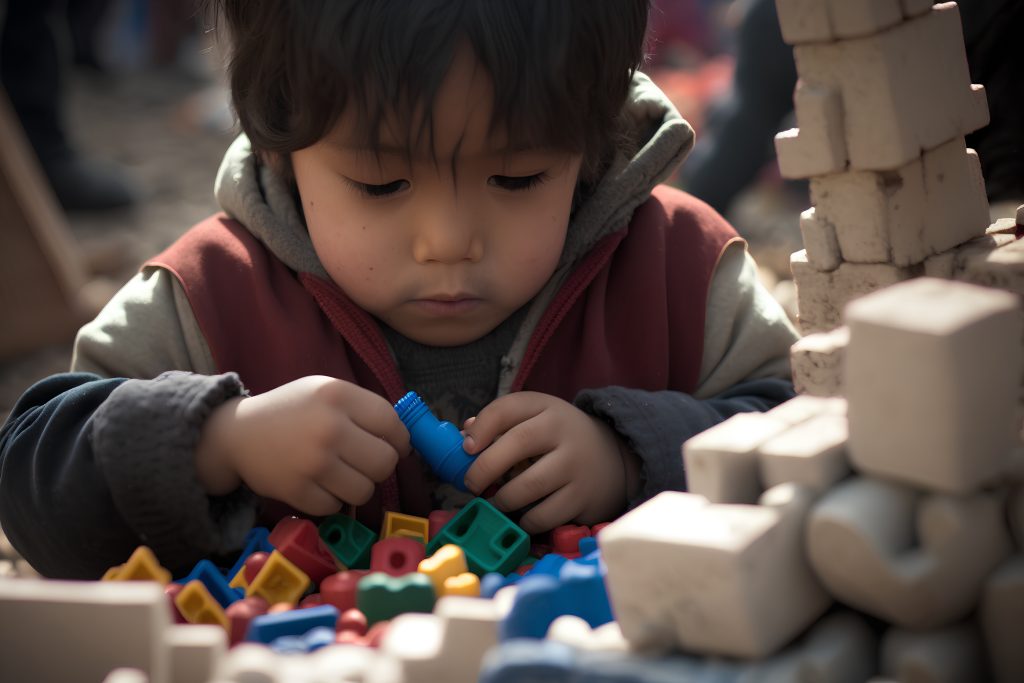
We intend to enhance mental health across generations by nurturing the lived experiences of children and future generations.
Many factors can contribute to poor mental health, and often, it is a combination of things that can leave us feeling debilitatingly anxious, depressed, or lost. Common contributors to poor mental health include:
- Childhood abuse, trauma, or neglect
- Social isolation or loneliness
- Experiencing discrimination and stigma, including racism and homophobia
- Poverty or debt
- Loss of a loved one
- Long-term stress
- Unemployment or losing your job
- Homelessness or poor standard of living
- Domestic violence, bullying or other abuse as an adult
- Significant traumatic events as an adult, such as being involved in a serious incident where you feared for your life
However, we are all likely to deal with the above in different ways, and our early life experiences and development will shape the way we deal with challenging situations in adulthood. For this reason, we believe the best way to safeguard mental health for future generations is to focus on children and the aspects of early years development that have the greatest impact on functioning as an adult.
How do you make or break the child in your care?
Good intentions are not enough to nurture a developing mind. How you relate to your child can help to nurture their mental and emotional wellbeing and help build secure attachment bonds.
There are a number of ways that we can nurture a secure attachment bond in our children, whether you are a parent, caregiver, or teacher, which will help build the self-esteem and fortitude necessary to sustain positive mental and emotional well-being throughout their adult lives, and lay the foundations for their own children’s wellbeing; these include:
- First and foremost, your child needs to feel safe and protected, physically and emotionally.
- Your child needs you to acknowledge and support them in managing their feelings non-dismissively.
- Your child needs all of your attention, at least some of the time.
- Your child needs to feel seen, valued, understood, and celebrated for who they are.
- Your child needs you to reassure them and feel comforted and soothed by your presence and what you say and do.
- Your child needs to feel supported in their desire to explore and learn, where possible, with you getting involved in what interests them.
- Your child needs consistency in the guidelines and boundaries that you set.
Improving relationships creates a better environment for children, and addressing issues early can prevent them from becoming long-term problems. It’s better to build children’s minds, than repair them later.
Whether you are in a parenting role, or a teaching role, there are some questions you might ask yourself to assess if you are doing all you can to protect your child’s mental health:
“How does the way I speak to my child hurt or encourage them?”
“How does my parenting or teaching style impact on the wellbeing of the child?”
“How do my own childhood experiences influence my approach to parenting or teaching?”
To help support you in answering these questions, and many more, follow the link to either the parenting section or teaching section, and start making a significant, positive impact on your child right now.
For more in-depth learning and understanding, please join us for one of our interactive workshops where we will take you through the fascinating development of ‘the self’, from conception, through the early years and into adolescence, where you will not only come to understand your own young people better, but also gain a greater understanding of your own parenting/teaching style, and the potential impact of that.
Latest Posts
- The Importance of Early-years InterventionThe importance of early years intervention regarding mental health cannot be overstated. It has become increasingly evident that the early years of a person’s life play a crucial role in… Read more: The Importance of Early-years Intervention
- Babies’ Mental HealthPromoting and nurturing babies’ mental health is crucial for their overall development and well-being. While babies may not exhibit mental health issues in the same way adults do, their early… Read more: Babies’ Mental Health
- How significant is infancy in shaping an individual’s development?The foundations learned during infancy can last a lifetime. No other period of life is as important in determining our future. During these early years, a plethora of cognitive, emotional,… Read more: How significant is infancy in shaping an individual’s development?


